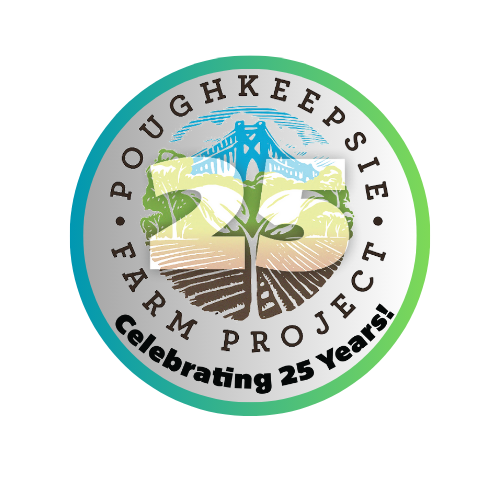If you are an educator looking to integrate gardening and food education into your work, consider attending the Poughkeepsie Farm Project’s Summer Institute for Educators this August. Are you a classroom teacher who wants to include more hands-on learning opportunities but aren’t sure how fit it all in? Are you new to the field of farm and garden education and want to get immersed in the topic? Do you have a vision to turn an empty patch of grass into a school garden but don’t know how to get started? Maybe your school has a neglected garden that just needs some love, attention, and advocacy to get it up and running again. Or perhaps you are interested in garden education as a way to explore food, culture, and heritage with your students. If any of these statements are true for you, our Summer Institute would be well worth your time. This three-day immersive training is designed to help educators integrate gardens into their teaching, and together we will explore topics in literacy, social studies, science, math, and nutrition, as well as build knowledge about sustainable agriculture, food systems, social justice, and ecological gardening practices.
Our annual program theme is “Using Gardens to Build Community”, and this year we will examine gardens not just as growing spaces or outdoor classrooms but also as vehicles that can empower youth to celebrate the diversity in their own communities. We will focus on the ways we can use gardens to promote the development of positive social skills, emotional regulation, mindfulness, and empathy. We will also consider how food and gardens can be used as a starting point for conversations about race and cultural heritage that are both developmentally appropriate and inclusive.
Workshop topics will range from the cerebral to the practical, and this balance is part of what makes this such a unique and valuable learning opportunity. In addition to our annual theme of building community, we will spend time on the basics of garden-based educational theory, we will visit learning gardens both at the farm and at local schools, and we will troubleshoot common challenges like how to engage a large group of students in a small garden and how to transform a typical school setting into a culinary classroom. And in addition to presenters from the PFP education team, guest presenters will include experts from regional educational organizations. Past speakers have included educators from The Mediation Center of the Dutchess County, Hudson Valley Seed, SUNY New Paltz, Cornell Cooperative Extension, as well as classroom teachers who’ve achieved high levels of success with garden education at their schools.
Regardless of your level of teaching experience or depth of knowledge in food education, one of the great benefits to all participants is sense of solidarity gained by spending three days in community with other like-minded educators who are all working towards the same goals. When you are teaching, whether you are in a traditional classroom or in a less conventional setting, you may feel isolated and alone in your work, especially if you are taking on a new project like managing a school garden. Participation in our Summer Institute will not only provide you with a wealth of knowledge to build your capacity and confidence as an educator, but it will also give you a much needed boost of optimism, joy, and rejuvenation before the start of the next school year.
So join us on the farm for three days of learning, teaching, and building community. The Summer Institute runs August 21-23, visit our info page for more information or to register. We hope to see you there!









